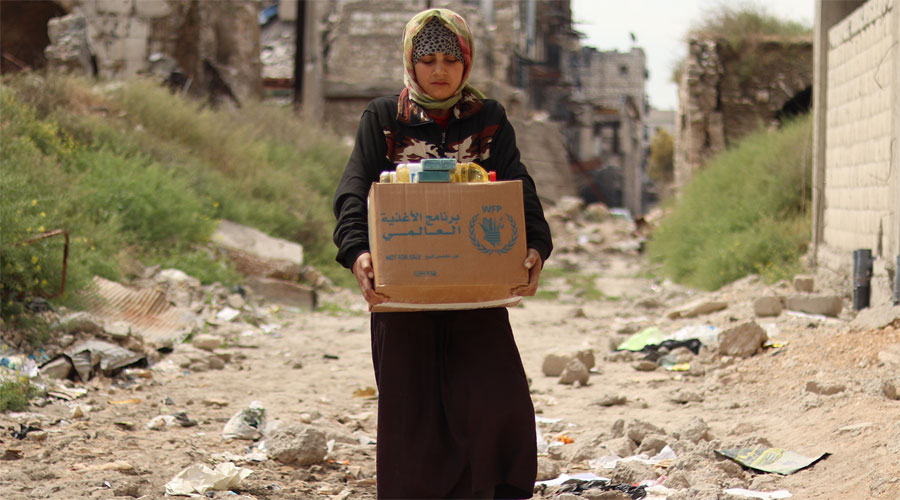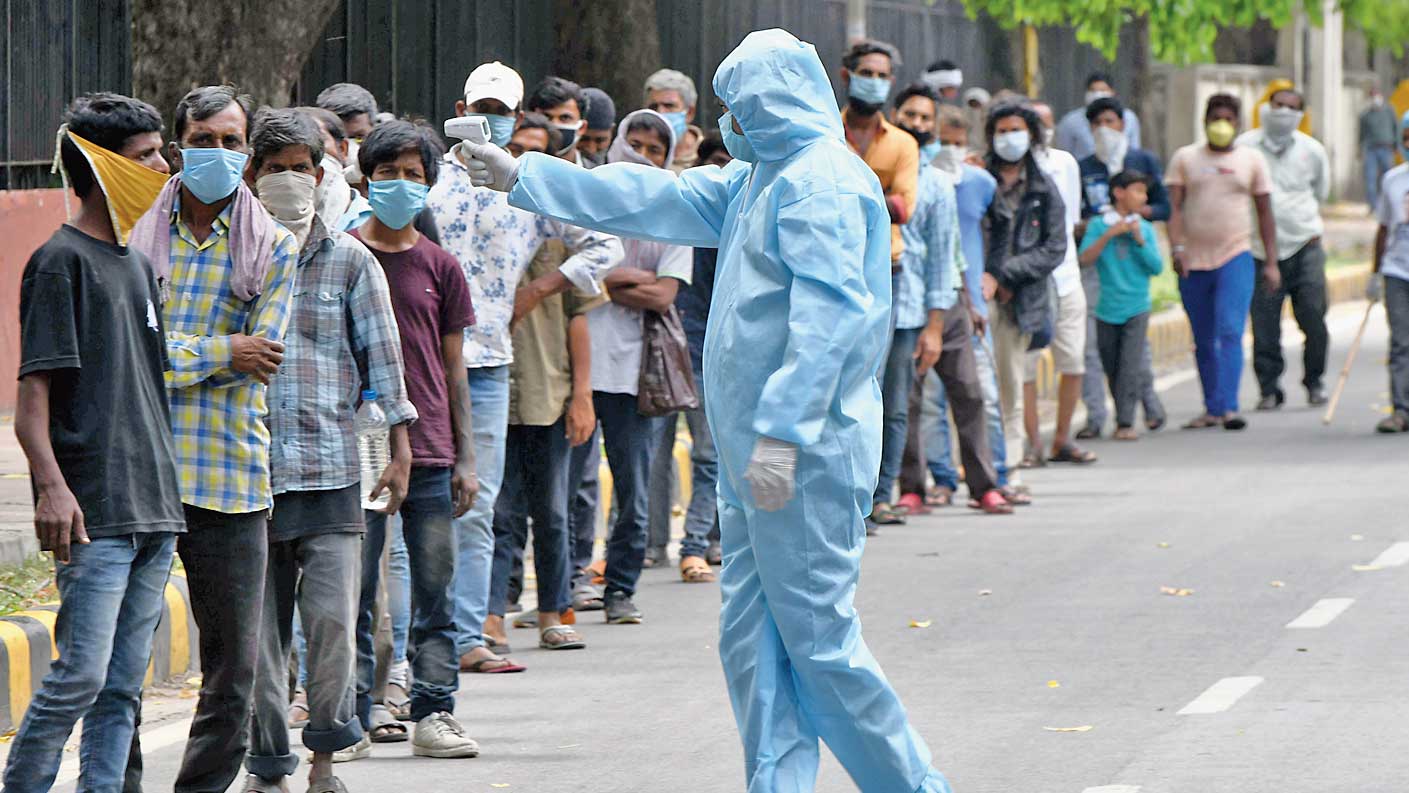The World Food Programme was awarded the Nobel Peace Prize on Friday for its efforts to combat a surge in global hunger amid the coronavirus pandemic, which has swept around the world with devastating impact.
The Nobel committee said that work by the organisation, a United Nations agency, to address hunger had laid the foundations for peace in nations ravaged by war.
“In the face of the pandemic, the World Food Programme has demonstrated an impressive ability to intensify its efforts,” Berit Reiss-Andersen, the chair of the Norwegian Nobel Committee, said as she announced the prize in Oslo. “The combination of violent conflict and the pandemic has led to a dramatic rise in the number of people living on the brink of starvation,” she added.
The World Food Programme — the largest humanitarian organisation addressing hunger and promoting food security internationally — last year provided assistance to nearly 100 million people in 88 countries.
During the coronavirus pandemic, the WFP’s logistics service despatched medical cargoes to over 120 countries. It also provided passenger services to ferry humanitarian and health workers where commercial flights were unavailable.
On any given day, it has 5,600 trucks, 30 ships and nearly 100 planes on the move, delivering food and other assistance, according to the programme.
The Nobel committee’s recognition of a UN agency comes as the US under President Donald Trump has very publicly pulled back support for the global organisation.
The organisation has long faced problems funding some of its largest operations, such as in South Sudan, where seasonal rains and conflict have disrupted food availability for as long as the programme has existed.
Yet, the agency has met with criticism that its food sourcing methods hamper already weak local food markets.
One of the programme’s key messages is that, in most cases hunger is the result of human actions rather than nature’s whims. Yemen is a case in point: Food exists, but hyperinflation and conflict make it practically unavailable to those who need it most, including children.
In a telephone interview, David Beasley, the programme’s executive director, said the prize had turned an important spotlight on the millions who go hungry around the world and on the devastating consequences of conflict.
“It’s the first time in my life I’m speechless,” he said, adding that it was both wonderful and bad news to receive, because it highlighted not only the work being done, but also the depth of the need for it.
Beasley said it was an “indictment of humanity” that anyone could want for food “in a time when there is so much wealth in the world”.
“It’s a call to action,” he said of the prize. “The world is suffering more than in any time period, and we literally will be facing famines of biblical proportions if we don’t act.”
In many nations, particularly those at war, the combination of conflict and the pandemic has sharply increased the number of people on the brink of starvation. As the global fallout from the pandemic began this spring, the World Food Programme estimated that the number of people experiencing life-threatening levels of food insecurity could more than double this year, to 265 million.
Since Trump took office in 2017, the US has withdrawn from several UN bodies and slashed funding for others, including those involved in humanitarian relief. Trump has contended that the US was shouldering an outsized financial responsibility for the global body compared with other countries.
In the spring, he halted funding to the World Health Organisation, a UN agency that has been coordinating the global response to the pandemic.
The World Food Programme, established in 1961 after a proposal by US President Dwight D. Eisenhower, has been a major behind-the-scenes player helping people affected by some of the world’s most devastating humanitarian disasters, including famine in Ethiopia in the 1980s, wars in Yugoslavia in the 1990s, the 2004 Asian tsunami and the 2010 Haiti earthquake.
Several UN and World Food Programme leaders mentioned in their responses to the Nobel Peace Prize that the programme depended on voluntary funding to be able to carry out its work.
“The world is in danger of experiencing a hunger crisis of inconceivable proportions if the World Food Programme and other food assistance organisations do not receive the financial support they have requested,” the Nobel committee said.
The Nobel Peace Prize comes with a cash award of 10 million Swedish kroners, about $1.1 million.
The organisation buys most supplies on the global market, and development experts have criticised it for offering contracts to major donors — like the US — in what has come to be known as “tied aid”, or the practice of tying humanitarian donations to purchasing contracts. In response, it has pledged to eventually source 10 per cent of its supplies from smaller local farms.
Its employees have at times also been accused by investigators, journalists and local groups of malpractice, such as stealing and selling food that is meant to be distributed for free. In a major operation in Uganda last year where the organisation tried to feed thousands of refugees, four died and hundreds became sick, leading to internal investigations.
The programme’s workers also risk their lives to carry out the mission, however, and several lost their lives — sacrifices that António Guterres, the UN secretary-general, noted after the award was announced.
“The women and men of the WFP brave danger and distance to deliver lifesaving sustenance to those devastated by conflict, to people suffering because of disaster, to children and families uncertain about their next meal,” he said in a statement on Friday.
Guterres also said there was “a hunger in our world for international cooperation”, noting that the programme relies on contributions from UN member states and the public.
New York Times News Service and Reuters












